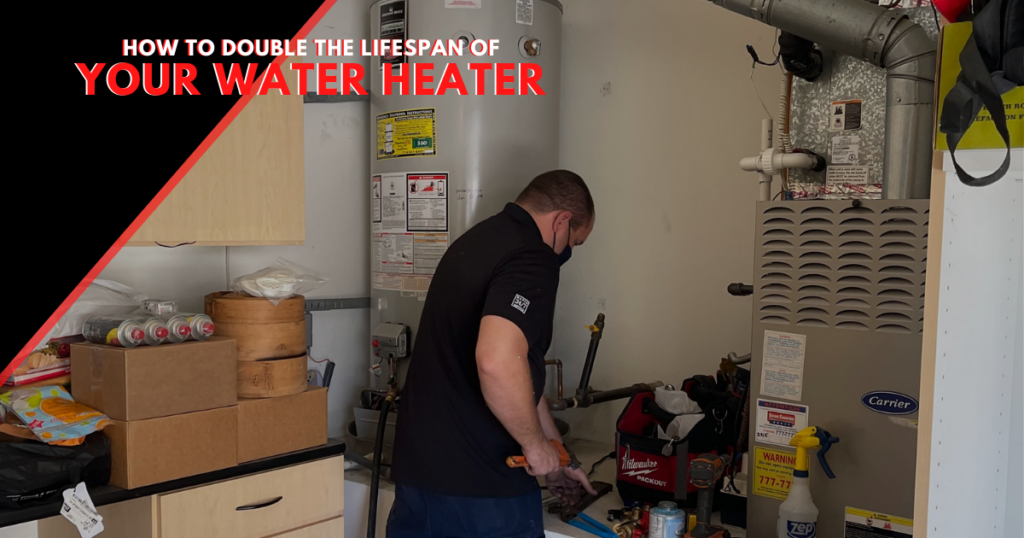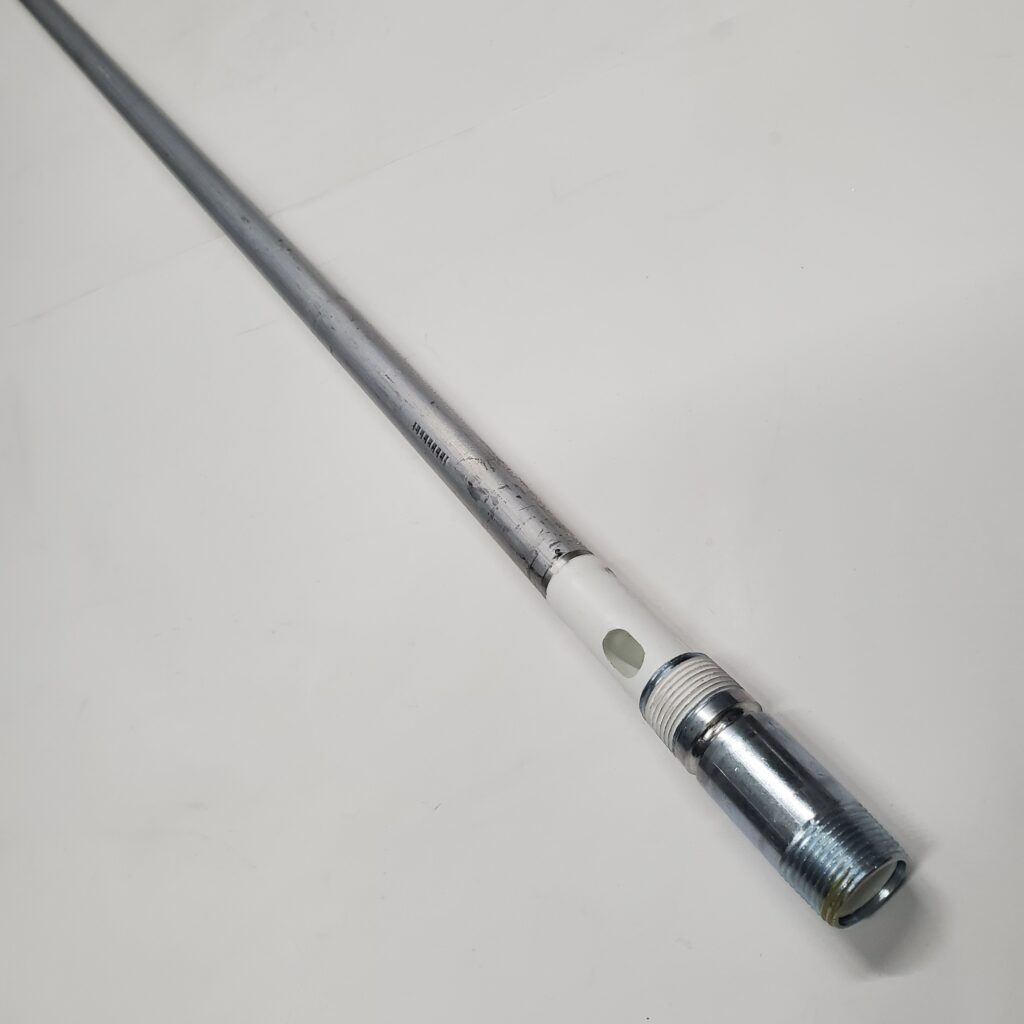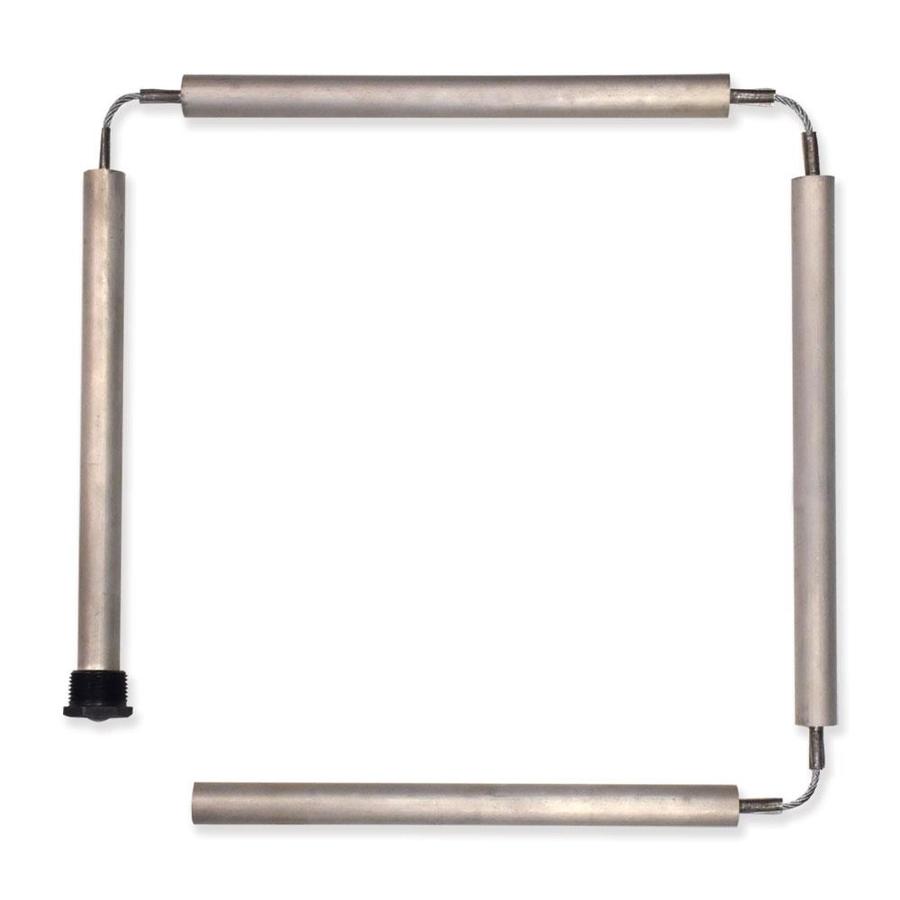
How To Double The Lifespan Of Your Water Heater
For many homeowners, water heaters seem to be a one-and-done item. You’re supposed to install it, use it, and that’s it. But think again.
There is a simple way to extend the life of your water heater, and it only takes about 20-30 minutes.
The way to extend the lifespan of a water heater lies in an annual check-up and replacement of one simple part: the anode rod. To get to the anode rod, let’s first work our way through the water heater itself.
As its name states, a water heater relies heavily on water for its functionality. But water isn’t always clean–it rarely is, in fact. Aside from H20, it’ll contain a variety of other chemicals and minerals like chlorine and fluoride, to name a few.
These of course play a huge role in what your water tastes and smells like. That’s why tap water tastes different in every local area. But, these additives do more than just that. They actually add a slight amount of conductivity to the water, and through a process called electrolysis, will actually corrode metal away. Most tanks are made up of steel with a porcelain enamel lining. However, this lining does not always provide complete coverage to the entire inside of the tank. As a method to counteract this, manufacturers install an anode rod.

Simply put, the anode rod is just an additional piece of metal included with the water heater. Constructed of aluminum or magnesium, it’s also known as the “sacrificial anode rod,” due to its sole purpose of being eaten away by electric conductivity. The hardness of your water will end up determining the lifespan of your anode rod. The harder the water (meaning the more chemicals in it), the more electrical conductivity, and thus the shorter the lifespan.
As a good best practice, the technicians at Olson Superior Plumbing have been trained to check the anode rod during our yearly home plumbing inspections. Once the initial one is replaced, you’ll have a good estimate of how long your particular anode rod will last you. On average, this will last 3 to 5 years. But, if you are in an area with particularly hard water, you can expect your anode rod to wear out faster.
Now that we’ve gone through the basic functionality, let’s get into the three main options you can choose from.
Option #1: Aluminum Anode Rod
First, there has always been a debate over whether an aluminum or magnesium anode rod system was better. But now that decision has gotten a little easier, thanks to science. Aluminum tends to hold up better against harder water, not to mention that it’s cheaper.
Option #2: Magnesium Anode Rod
Magnesium, on the other hand, performs better with soft water, as hard water eats away at it quickly, and tends to be on the more expensive side. Yet, it should also be noted that aluminum will sometimes leave a mineral deposit that hardens on the bottom of the tank; if this happens to find its way into your pipes, it could cause a clog.
Option #3: Aluminum Zinc
In the special case that you actually have smelly water, read closely. We all know what that smells like: sulfur, rotten eggs, that sort of pungent odor. This is caused by anaerobic bacteria reacting with the metal anode rode and producing a hydrogen sulfide gas. The solution: zinc. Aluminum zinc rods counteract this bacteria; of course, these are the most expensive of the anode rod options. But that shouldn’t deter you if you do in fact have smelly water. The cost is well worth the outcome.

Space Issues? No Problem
If, when installing an anode rod, you realize you do not have a lot of space to work, this could become a problem. Maneuverability on the job can cause a hassle in a lot of different scenarios. Removal of the old anode rod will be the hardest part of the job, as a lot of homes only grant you 6 to 12 inches of working space above the water heater. So, if you do have to replace an anode rod that falls into this category, Flexible Anode Rods are the solution you’ve been looking for! These nifty creations work the same as a regular anode rod but divide into 4 sections, making installations and removals pain-free.
The anode rod is oftentimes a forgotten part of your water heater. But it shouldn’t be. This metal rod is critical to your tank’s lifespan. If properly maintained and cared for, an anode rod will be a small expense every 3-5 years and have the ability to actually double the lifespan of your water heater. So, the takeaway here: take care of your anode rod, and it will save you time, money, and frustration in the future.
If you have any questions, call our 24/7 Rapid Response Team at 949-328-6002 or email us at [email protected] – If you want more information online, please visit us @https://www.OlsonSuperior.com
For industry insights, announcements, and tips make sure to follow our blog at: olsonsuperior.com/blog

